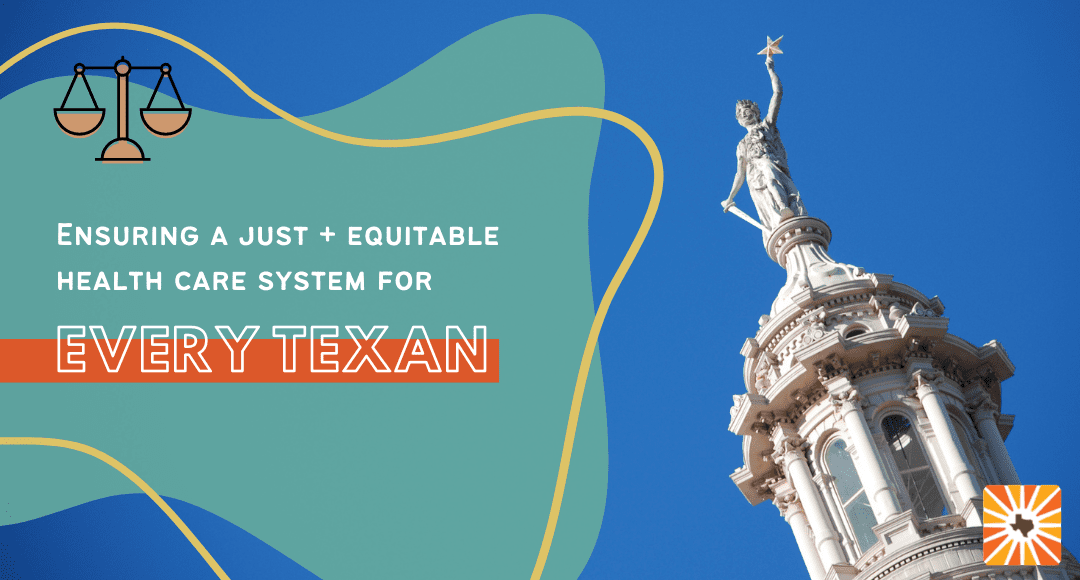New regulations issued by the Biden Administration could help Texas families hit hard by COVID-19 to get health care, food, and other basics. But leaders need to act now to ensure Texans know about them.
A new “public charge” regulation finalized by the U.S. Department of Homeland Security (DHS) adds critical protections to secure immigrant families’ access to the health and social services safety net. While the final regulation largely restores and clarifies the public charge policy in place for 20 years prior to the Trump administration, it also makes improvements sought by Every Texan and more than 1,000 other organizations coordinated by the Protecting Immigrant Families coalition (PIF).
How We Got Here
The Trump Administration changed the policy in 2019, adding dramatic barriers to how officials administer the “public charge” provision of immigration law. Unlike the longstanding rule, the Trump policy put immigration applications at risk if lawfully-present immigrants used specific government programs for health care (Medicaid), food (the Supplemental Nutrition Assistance Program [SNAP]), and housing (“Section 8” vouchers). The Trump policy took effect just weeks before COVID-19 hit the United States.
As public health experts found, the Trump public charge policy “intensified, rather than mitigated, racial health inequality” during the pandemic. Immigrants account for about one in ten Black people in America, about one-third of Latinos, and about two-thirds of Asian Americans or Pacific Islanders. So, of course, a policy targeting immigrant families worsened racial disparities.
Research confirms the now-reversed Trump public charge regulations and their widespread “chilling effect” deterred millions of immigrant families from seeking health care and aid during the pandemic, undermining the U.S. pandemic response and widening racial disparities in its economic and health impact. Long after its reversal by the Biden Administration, persistent information gaps and concerns about the Trump policy continue to drive lower COVID-19 vaccination rates, food insecurity, and other disparities among immigrants of color.
The Biden Administration ended the Trump policy last year, reverting to a policy that had been in place since 1999. But because that 1999 policy was never formalized, the federal government needed to ensure that a future presidential administration could not change it quickly and put families at risk again.
The New Rule
The new regulation is a major win for immigrant families. It formalizes the 1999 policy, making it harder for future presidents to target immigrant families. It also adds critical protections, confirming that eligible people in immigrant families can use health care, nutrition, and housing programs without public charge concerns.
Based on a Protecting Immigrant Families coalition analysis, key provisions of the final regulation clarify that:
- A child’s or other family member’s use of federal safety net programs never affects another applicant’s immigration application.
- SNAP, the Special Supplemental Nutrition Program for Women, Infants, and Children (WIC), the Child Tax Credit, Section 8 housing, and other “non-cash” federal programs (and state- and locally-funded versions of those programs) never affect immigration applications.
- DHS will not consider use of health care programs (like Medicaid, CHIP, and the health care marketplace) by eligible immigrants and their family members as grounds for denying an immigration application.
- DHS can consider long-term institutional care paid for by Medicaid (short-term rehabilitation or community-based services will not be considered), and cash assistance for income maintenance such as SSI, TANF, and state, local and tribal cash assistance. However, DHS must also consider other positive factors such as education, income, and an affidavit of support. Therefore, the applicant’s use of long-term institutional care or cash assistance will not automatically result in a determination that the applicant is likely to become a public charge.
Spread the Message
Texans can only benefit from the new regulation if local immigrant families know the policy has changed. When the Biden Administration reversed the Trump policy a year ago, polling found that less than one-fourth of immigrant families had heard about the policy change. This time, we must all do better.
Every Texan is working with partners across the state through Seguro Texas to reassure families it’s safe to enroll and receive food, health, and other public benefits. Advocates, enrollment assisters, and care providers are all critical to spreading this message.
Moving Forward
We must put the mistakes of our past behind us. The Biden administration took an important step in that direction in issuing the new public charge regulation. Now, federal, state and local leaders must ensure that immigrant families know about the policy change.
Much work still remains. Lawfully present immigrants are still excluded from some federal benefits for their first five years in the U.S. And the new regulation still allows immigration officials to consider the use of “cash assistance” programs and long-term care financed by Medicaid as grounds for denying permanent resident status. The public charge provision of federal immigration law creates a “placeholder” for exclusion of some immigrants, meaning that a change in law is required to repeal or fully reform the Public Charge test. Enacted alongside the Chinese Exclusion Act in 1882, this provision was born from anti-Asian racism and designed to legalize discrimination against low-income immigrants of color.
Still, the new Biden public charge regulation is a major win for immigrant families in the broader fight to repeal provisions in immigration law that discriminate against low-income people of color. And it’s an especially important one for immigrant communities that have been hit hard by COVID-19.
Resources:
Protecting Immigrant Families Coalition
Seguro Texas
- Recursos para familias (resources for families in Spanish)
- Resources for families
- Resources for enrollment assisters
- Resources for advocates
